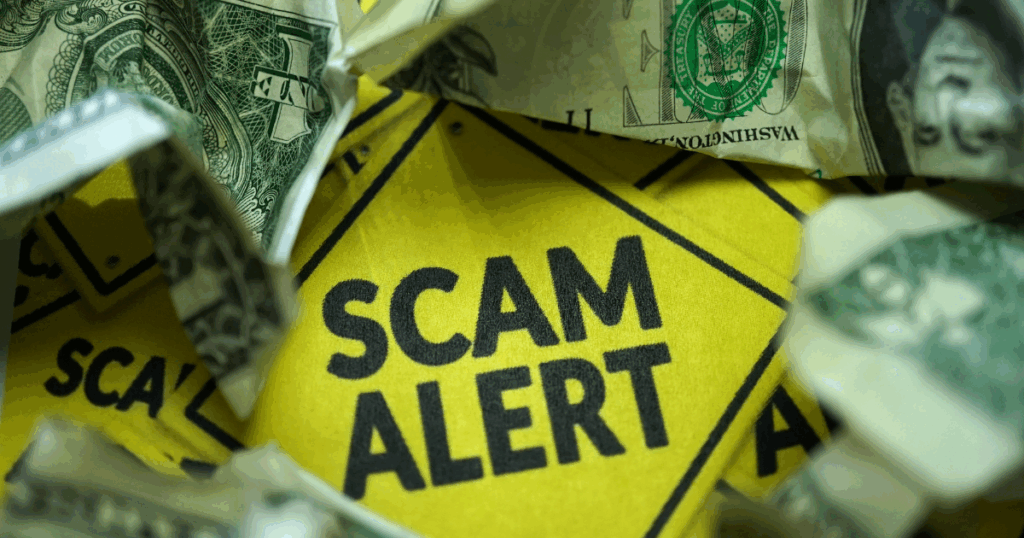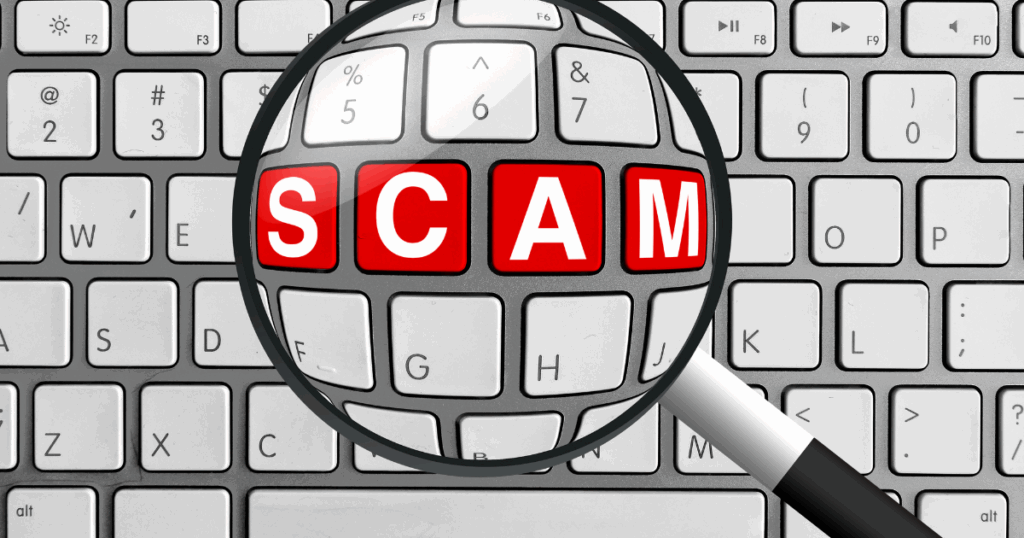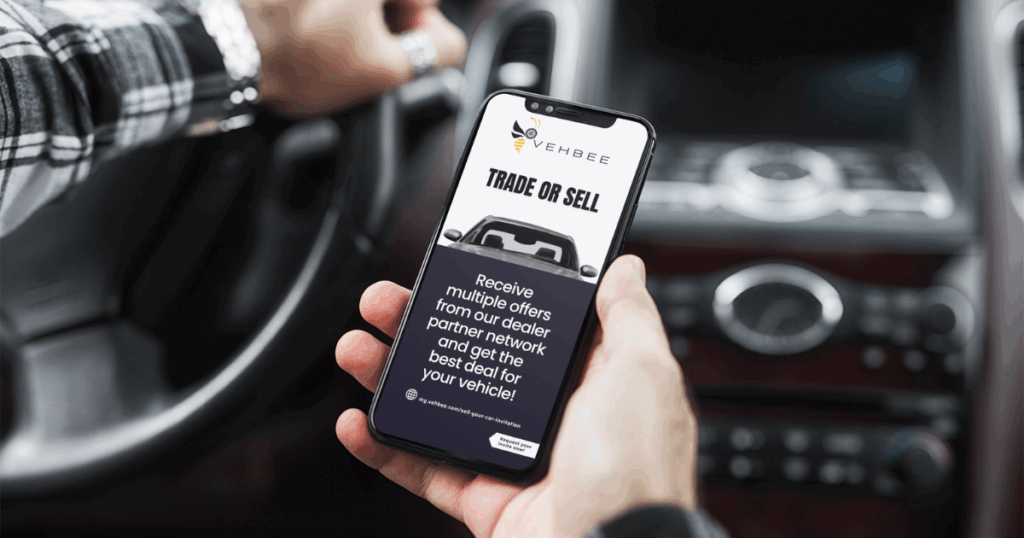
Online car sale scams are on the rise — and whether you’re buying or selling, the risks are real. From fake buyers with shady payment methods to fraudulent listings designed to steal your money or personal info, scammers are constantly finding new ways to take advantage of unsuspecting drivers.
The good news? Most online car sale scams follow predictable patterns — and once you know what to look for, they’re easy to spot and avoid. In this post, we’ll break down the most common scams, show you how to protect yourself, and share why using a trusted automotive marketplace can help keep your transaction safe from start to finish.

Why Online Car Sellers Are Targets for Scams
Online marketplaces are appealing to fraudsters because they offer easy access to unsuspecting sellers and minimal identity verification. Private sellers are often less familiar with buyer screening, secure payment handling, and legal documentation—making them ideal targets.
Scammers may appear polite, financially capable, and in a hurry to close the deal. But behind that urgency or over-eagerness is often a plan to steal your car, your money, or your personal data.
Are you selling a car online? If so, know that scammers may target you. They’ll pretend to be a buyer and try to trick you into sending them money. Here’s how the scam works.

Common Online Car Sale Scams (And How They Work)
Understanding how these scams work is your first line of defense.
1. Fake Payment Scams
One of the most common tricks involves sending fraudulent payment confirmations. Scammers may use fake cashier’s checks, falsified PayPal or Zelle receipts, or phony bank wire confirmations. They’ll insist the money has been sent—often before you’ve had time to verify it—and pressure you to hand over the keys.
Red Flag: The buyer is pushy about immediate delivery or pickup and claims payment has been made—without real proof.
2. Overpayment Scams
Here, the buyer “accidentally” sends more money than agreed upon—often through a fake check—and asks you to refund the difference. After you send money back, the original payment bounces, and you’re left with a loss.
Red Flag: Any buyer who sends more than the agreed price and wants you to send money back is likely running a scam.
3. Escrow or Third-Party Scam Services
Some scammers pose as reputable third-party services (like escrow companies or shipping agencies) to give a sense of security. They’ll redirect you to fake websites or send links to phishing platforms requesting personal information or payment.
Red Flag: The buyer insists on using a third-party escrow or shipper you’ve never heard of, or the website looks unprofessional.
4. Stolen Identity or Fake ID Scams
A scammer might present fake driver’s licenses or forged documents to pose as a legitimate buyer. In some cases, they’ll even test drive the car and disappear—stealing the vehicle with no real trace.
Red Flag: The ID seems altered, or the buyer avoids meeting in person or providing verifiable documentation.

Smart Tips to Avoid Car Sale Scams as a Private Seller
Now that you know what to look out for, here are the most important steps to protect yourself when selling a car online.
1. Always Meet in Person — in a Public Place
The safest way to handle an online car sale is to meet the buyer face-to-face in a secure, public location. Police departments often provide safe transaction zones, and some bank branches allow car sales to happen in their parking lots under camera surveillance.
- Avoid meeting at your home or the buyer’s home.
- Choose well-lit, high-traffic areas for test drives and inspections.
- Bring a friend or family member for added safety.
2. Never Accept Digital Payment Without Verification
Digital payments like Zelle, PayPal, or Venmo are easy—but they’re also vulnerable to scams. Many fraudsters send fake screenshots or confirmations to trick sellers into releasing the vehicle.
Best practice:
- Only accept payment methods you can verify (such as cash, verified bank transfer, or an escrow service you trust).
- With cashier’s checks, call the issuing bank to confirm it’s real and funds are available.
3. Use Reputable Escrow Services—Not Ones the Buyer Suggests
If you’re doing a high-value transaction and prefer using escrow, only go with well-known platforms like Escrow.com. Scammers will often recommend fraudulent “escrow” services they control, to steal either your car or your money.
Tip:
- Visit the escrow site directly by typing in the URL yourself.
- Never click on links provided by the buyer unless you’ve verified the domain.
4. Never Share Personal or Financial Information
You don’t need to provide your home address, banking details, or Social Security number to sell your car. Some scammers ask for personal info under the guise of “running a background check” or setting up insurance before pickup.
Protect yourself by only sharing:
- The vehicle’s basic details
- A safe contact method (like a Google Voice number or business email)
- Necessary documentation once a legitimate transaction is confirmed
5. Verify the Buyer’s Identity Before a Test Drive
Before letting someone drive your car—even for a short spin—verify and photograph their driver’s license, and ensure they have active insurance. Fraudsters have been known to disappear with vehicles during “test drives.”
Pro tip:
- Ask for a refundable deposit before handing over the keys.
- Ride along during the test drive whenever possible.
6. Don’t Fall for Urgency or Emotional Pressure
Scammers often invent emotional stories or time-sensitive excuses to rush the sale—claiming they’re in the military, moving out of state, or buying for a relative.
Stay objective. If something feels off, it probably is.
7. Use a Bill of Sale and Keep Documentation
Always complete a bill of sale to document the transaction legally. Depending on your state, this may be required to protect yourself from future liability or disputes.
Also:
- Report the sale to your DMV or tag office immediately.
- Remove your license plates if state law requires.
- Keep copies of the title transfer and bill of sale.
8. Price Your Car Realistically
Setting a fair, researched asking price deters scammers looking to take advantage of inexperienced sellers. Use reputable sources like Kelley Blue Book or Edmunds to understand your vehicle’s true market value.
Overpricing your vehicle can attract fake buyers looking to negotiate and manipulate the deal. Underpricing may draw in scammers trying to make a quick flip.
9. Watch Out for Suspicious Language or Poor Grammar
Many scam messages have red flags in their writing:
- Vague details about the car
- Referring to it as “the item” instead of your make/model
- Broken grammar, strange email addresses, or overseas references
10. Trust Your Gut
This might sound cliché—but instincts matter. If something feels too good to be true or if the interaction feels “off,” step back and reassess. Legitimate buyers will respect a transparent, secure process.

Platforms That Help Prevent Car Sale Scams
Some online marketplaces take seller safety seriously. If you’re looking for a platform designed to protect private sellers, here are a few options:
1. VehBee
VehBee connects sellers directly with verified local dealerships, cutting out the guesswork and reducing the chance of fraud. With one listing, you receive multiple offers and choose who to sell to based on location and value. No random buyers. No fake checks. Just real offers.
2. Autotrader & Kelley Blue Book Instant Cash Offer
These platforms offer dealer-backed trade-in programs that eliminate individual buyer interactions. While you may not get as much as a private sale, they offer strong fraud protection.
3. Facebook Marketplace with Caution
Facebook’s messaging and profile system gives you some ability to screen buyers, but it’s still a hotspot for scams. Use Marketplace only if you’re confident in vetting leads yourself.

What to Do If You Suspect a Scam
Even if you follow all precautions, scammers are sophisticated—and mistakes happen. If you believe you’ve been targeted or tricked:
- Do not proceed with the sale. Cut off communication immediately.
- Report the incident to the platform (e.g., Craigslist, Facebook, VehBee).
- File a report with your local police or fraud division.
- Notify the FTC at ReportFraud.ftc.gov to help warn others.
- Inform your bank if any financial details were shared or compromised.
Selling your car online can be safe, fast, and profitable—but only if you take the right precautions. Understanding the most common scams and red flags empowers you to protect your vehicle, your money, and your personal information.
At the end of the day, it’s about being cautious without being paranoid. Trust verified platforms, avoid cutting corners, and don’t let a good deal cloud your judgment.
Ready to Sell Your Car the Safe Way?
VehBee makes it easy to sell or trade in your car online—with zero pressure, real dealer offers, and a secure, streamlined process that keeps you in control.
👉 List your vehicle now at VehBee.com and let verified dealers compete for your car—no scams, no games.



